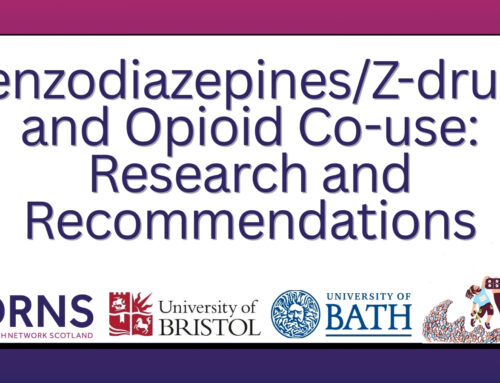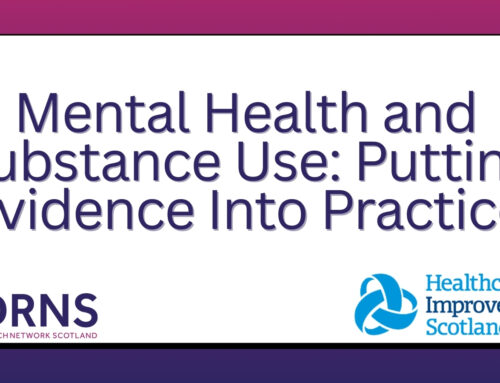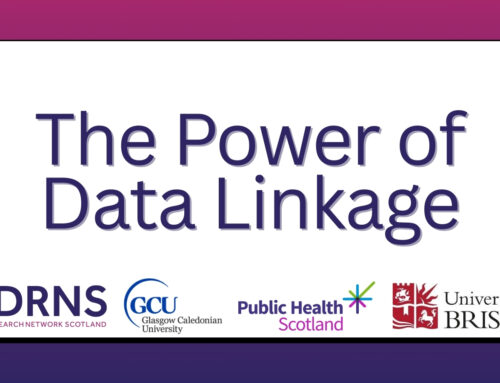ECR event 30th March 2022

The Team @ DRNS is aware that it is important to attract good talent to the field and to retain it. That is why capacity-building is one of our key priorities. This includes the support of early career researchers (ECRs) because they represent the future of the field. We know that for ECRs, there are advantages to working in this important and interesting field, but there are challenges too. DRNS has devised a series of initiatives aimed at supporting ECRs, but we felt it was important to speak to ECR themselves to find out if the initiatives would add value, and whether there was more DRNS could do.
The session opened with presentations from three ECR speakers, who shared with the group their career trajectory, the trials and tribulations they had encountered personally, and their suggestions regarding how to navigate the challenges. The session then broke into two smaller groups where they were invited to consider some statements. Responses were captured by group facilitators, and are summarised as follows:
Defining ‘ECR’
The group felt that identifying as an ECR can be useful. Some networking opportunities and funding are aimed specifically at ECRs and being designated “ECR” allows an individual to access those opportunities. However, non-standard career paths meant that the term ECR can be vague and may act as a barrier for a wider range of people who would benefit from access to these opportunities.
“I know that various organisations describe an ECR as anybody who is doing their PhD or within 5 years of finishing it, but I’m not sure that’s inclusive enough. What about people thinking about a PhD? What about people who want to be involved with research as a peer researcher or as somebody working in the third sector. What about people who are still moving from one 6-month contract to the next, 8 years on from PhD? Are they ECRs too?”
“Most grant funders are moving away from the ‘no. of years post doc’ and being more flexible around time for parental leave, working in ‘industry’ etc”
Why I think life as an ECR can be great
The group identified many positives to life as an ECR. People felt that the field was interesting and inspiring, with great career potential and avenues to explore. At an individual level, people said that they enjoyed the flexibility to work from home and appreciated the autonomy, protected time for research and exploration, and the respect they were given from colleagues.
Why I think life as an ECR can be hard
Key among the challenges discussed was precarity/job instability at this early career stage, which was mentioned many times in both the groups and initial presentations. This was particularly relevant in the current financial climate and for those without partner or family financial support. Related to this was a sense that there was no clear career path for ECRs, and that the route to stability appeared to be via a teaching career.
The group also discussed their perception that the topics people explored could be emotionally hard work, especially for those with lived experience and past trauma.
Poor mental health arising from the nature of academic life was raised several times i.e., work/life balance, isolation, internal and external performance pressure, high expectations. The following paper was offered: https://link.springer.com/article/10.1007/s12144-021-02309-y
These challenges had been exacerbated by the isolation resulting from Covid.
Also discussed was a perception that part-time working as a way to reduce precarity left a person ‘out-of-the-loop’.
Things I do to cope with life as an ECR
Predominant among the coping mechanisms discussed was the benefit of relationships and connections. Volunteering was a coping mechanism which came up several times, as was the importance of making connections and talking with other people in and out of academia. This, it was felt, brought solidarity, support, and perspective. One of the groups suggested that people might benefit from connecting with the Emotionally Demanding Research Network.
Things that other people, organisations or institutions could do to help ECRs
One group expressed their concern that ECRs need to share a responsibility for making the research setting accessible, transparent and jargon-free in order to support engagement for those with lived experience who are interested in getting involved.
Most commonly discussed was the need to consider structural change in HE more generally designed to address the precarity which had already been identified as a key challenge for ECRs. The group was pointed towards the Concordat to Support the Career Development of Researchers and the following comments captured the general sentiments expressed on the day.
“[Universities should] actively support and commit to support ECR development. Universities being aware of their rights and responsibilities towards career development. Postdocs/ECRs are NOT just ‘fillers’ for folk on study leave, or who have the privilege of being ‘bought out’ by funding. Commitment to permanent posts!”
“The university and research infrastructure is dominated by neoliberal marketisation (e.g. competing against each other for grants, huge amounts of repetition in applications, big chunks of research money needing to go on legal and admin, REF processes) – which leads to our precarity as we only have a job if grant money comes in […] If all organisations took a stand against the current model as bad for the sector and the workforce, what could we have instead?”
“HE relies on a lot of unpaid labour. Often, the things you do to develop your career (and make you a more useful employee) are done in your own time unless you have a boss that allows it. If RF/RA contracts had even a small %age of time built into them to allow for these tasks, it would increase skills and goodwill and improve stress levels.”
DRNS initiatives
Connecting with others
Networking was important for the group, not simply as a mechanism for career and collaboration, but as a way to find mutual support, commonality, and solidarity. Some of the initiatives already considered by DRNS address this requirement.
Connecting for careers and collaborations
DRNS runs a series of information sessions, events, and training, which offer a way to network with others sharing your research interests. Our events are often open to a wide range of academics, people with lived experience, and those working in practice and policy settings. One good example is our conference which is on May 26th 2022. We advertise our events on our website, newsletter (sign-up on the homepage) and Twitter (@DRNScot).
We also use those channels to draw your attention to interesting developments in the field which might be useful for your career, such as important new papers or policies. Look out for the upcoming blog about the Resume for Research and Innovation (R4RI), which is a gear change for the way that academics promote their skills and important information for an ECR to know.
If you have an idea of an event, training, or other session that you feel would be useful, if you want to write a blog about an aspect of the field that you feel is important, or if you want to share information others would benefit from get in touch (admin@drns.ac.uk).
Connecting for solidarity and support
The need for wider connection with peers was evident in the ECR session. DRNS recognise that people need to find a space to talk informally about the things that interest and concern them. The DRNS intranet makes that possible. There, you can find forum boards which allow you to ask questions, give your views, extend discussions started at events or elsewhere or start discussions about things that intrigue you. For instance, following the ECR session, DRNS has set up a thread about the event and re-posted the statements we discussed that day. Why not continue the discussion there? The intranet is a members-only space, but it’s free and easy to join. The intranet is a brand-new initiative and is still a work-in-progress. We welcome any suggestions about ways we might improve or develop it.
Other initiatives
We have had other ideas that might be useful, and which are additional to the concerns raised in this session. For instance, we are considering whether DRNS could offer useful research experience through a series of short internships, and we are looking into the prospect of setting up a small research fund for ECR’s which they can use to finance small pieces of work. These opportunities are not yet available, but we will promote this through the DRNS channels when we have more to tell you. Another opportunity which is already available is the register of experts. You have expertise which is desirable, so let us know about it. DRNS keep a register of individuals who would be interested to offer academic representation on committees and working groups.
Things we still need to think about
Most pressing among the topics raised in the session was the effect of ongoing career precarity for ECRs, and the need for security, a clear career path, and career support. These are challenging to address. In terms of what DRNS can do right now, we already support individuals and teams who are trying to turn their research ideas into a funded study. We will explore how best to advocate for the support and development of any Research Fellow posts identified in the bids we support. It is, however, clear that we will need to continue to explore avenues to address these concerns and advocate more widely where we can. We will share news with you when we have it and would encourage you contact us at admin@drns.ac.uk if you have any further suggestions. You might also wish to start a discussion on our intranet forums.
A note from Hazel @Team DRNS
As an ECR myself, living with the very same opportunities and challenges we discussed, I felt privileged to be part of the discussions. It was wonderful that people were able to be so candid about their experiences and concerns. I echo the general feeling of excitement to be doing the job I do, but I also know that when we are all so busy doing the day job in our own little corners of the drug research world, it’s hard to find the time to have a good chat about the things that concern us. Opportunities to talk like the session we attended that day are few. I am fortunate that DRNS has a desire to support ECRs and I hope that I can capitalise on my position to help effect real changes for us all.






